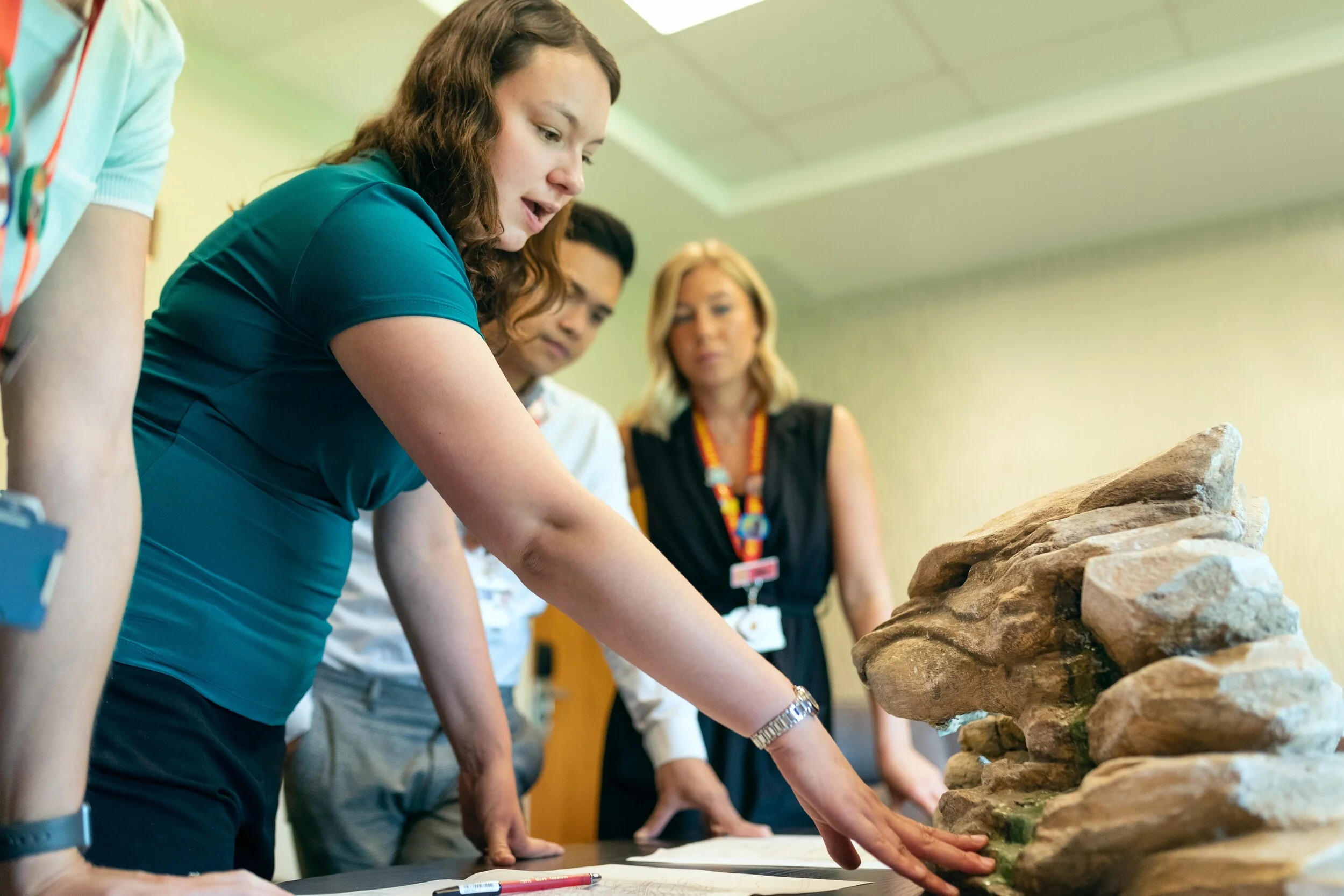A blueprint to revitalise creative hands-on learning
Three senior engineers founded a group called Hands on the Future™ (HOTF) five years ago. Here is HOTF’s campaign to re-imagine the role of physical “hands-on skills” and assert their importance through careers events, exhibitions, seminars and workshops in schools, colleges, universities, museums – and now online through this website. The HOTF campaign currently focuses on the Solent region of the UK.
The three senior engineers are Peter Mucci, Mike O’Sullivan, and Alan Tricklebank, who are fellows of the RSA (the Royal Society for the encouragement of the Arts, Manufactures and Commerce). They have met and talked to business people, academics, teachers, students, MPs, local politicians, civil servants, administrators, thinkers and doers.
Inspiring hands-on designers, problem-solvers and makers.
Hands on the Future™ aims to encourage people to be creative with their hands and stimulate their curiosity about how things work and how they are made.
The campaign focuses local interest and action on preparation for apprenticeships, further and higher education, skills and jobs.
The HOTF mission lies in generating initiatives to open the eyes of young students and others to the possibility of a career in engineering and making – design, manufacture and construction.
HOTF puts particular emphasis on the continuing importance of physical hands-on experience and the value of hand/mind skills, in their own right but also as a vital and sound basis for building feel and judgement for the wide range of skills and techniques required in modern practice.
The HOTF offer
“Science can amuse and fascinate us all, but it is engineering that changes the world.” - Isaac Asimov, American writer, professor of biochemistry.
Organising contacts, connections, collaborations, articles, information, news of events.
Providing a vision of the future where human hand/mind skills are embedded in the working culture.
Helping to get the best from current and new design, production technologies and ideas.
This applies in the Solent Region to all ages and walks of life, whether you are:
a student at school, in apprenticeship or at university
an academic, craftsman or a DIY fan
in manufacture, construction or research
an inventor, a designer or development engineer
a production engineer, toolmaker, machinist, quality controller
in product assembly, maintenance, repair, repurposing or recycling
in a large company, small/medium enterprise or working as a single trader
Background
The three HOTF founders, who are supported by a marketing communications expert Nick Keith FRSA, have spent their lives working in mechanical, aerospace, naval, marine, civil and structural engineering projects. Their experiences range from the smallest to the largest projects working with private companies, the military, civil service and academia.
The team also has expertise from 20 years of developing student projects and CPD. They know that the best way to excite and interest young people is by the use of real products and systems. They want to engage UK students in engineering and science subjects and have devised a blueprint to revitalise creative hands-on learning.
The HOTF programme is closely linked to the national curriculum, to STEM and to careers’ events for students.
What they say
HOTF points to the decline in the practical teaching of creative design and hands-on making skills to students in schools and colleges.
Peter Mucci explains: “The idea is to raise awareness of the importance of making/repairing things and by offering choices at the start, drawing people toward something that may interest them, if it is attractively presented.”
Mike O’Sullivan says: “The majority of products – from computers to aircraft carriers – are made, maintained or repaired by hand by technically able and qualified people. This requires high levels of creativity and skill at pre-production, production and post-production stages.“
Alan Tricklebank adds: “A free introduction to engineering for school students, and people of all ages, with guided hands-on experience of basic but challenging tasks which can inspire interest and confidence, and can be a gateway to further and higher education, apprenticeships, and employment.”
Alan Tricklebank, Peter Mucci and Mike O’Sullivan at Beaulieu Get Inspired careers’ event in 2019.
The future
The road ahead is challenging in the extreme. The UK faces several critical issues: Recovery from the Covid pandemic; the exit of the UK from the European Union; the urgent need to play our part in accelerating the transformation of the global economy and ways of life; and the linked existential crises of climate change and environmental degradation.
Engineering and manufacture across the whole spectrum of disciplines and trades are critical to dealing with the issues facing the UK and the World from now on and way into the future.
To quote the environmentalist guru Naomi Klein, “This changes everything”.
We can now see a huge range of areas where major change is needed, and indeed some with significant action already underway.
The view, long-held by many, has been growing in this country that we still need industry and manufacture; that de-industrialisation has gone much too far; and that the obsession with outsourcing products needs to be reversed as many of these could and should be made cost effectively in the UK.
The big picture
A huge creative effort is required to connect scientific research and engineering invention, innovation, development and implementation, all this to be done whilst maintaining all the critical systems and activities that sustain us.
Crucially this will need many more skilled engineers and makers, capable of using the best tools for the tasks in hand. For decades, UK industry has suffered from a chronic shortage of skilled engineers and makers.
The long debated strengthening and broadening of creative technical education in schools and further education is urgently required. Similarly, the widely acknowledged need for continuing education and skills training / re-training throughout an individual’s career must also be addressed.
This cannot be achieved simply from top-down action, essential as it is. Locally based action is also essential. HOTF’s experience of campaigning and activities over the past five years is that similar groups can provide great assistance:
supporting local educators
inspiring students in the personal and social value and rewards of a career in engineering and making.
Partners
HOTF has already partnered with local organisations in creating easy-access introductory schemes and training, to give students a hands-on experience of the skills needed for creative design, manufacture, repair and maintenance. Their individual partners include Jonathan Ridley, Head of Engineering at Solent University in Southampton; and Dr Richard Little, MD of Jenton International Ltd and a founder of the Wessex Round Table of Inventors.
HOTF also operates and exhibits the Rotor Challenge at careers events for students organised by EBP South (the Education Business Partnership); and at education conferences, such as those provided by the Solent Local Enterprise Partnership (LEP).
“Engineering stimulates the mind. Kids get bored easily. They have got to get out and get their hands dirty: make things, dismantle things, fix things. When the schools can offer that, you’ll have an engineer for life.”




